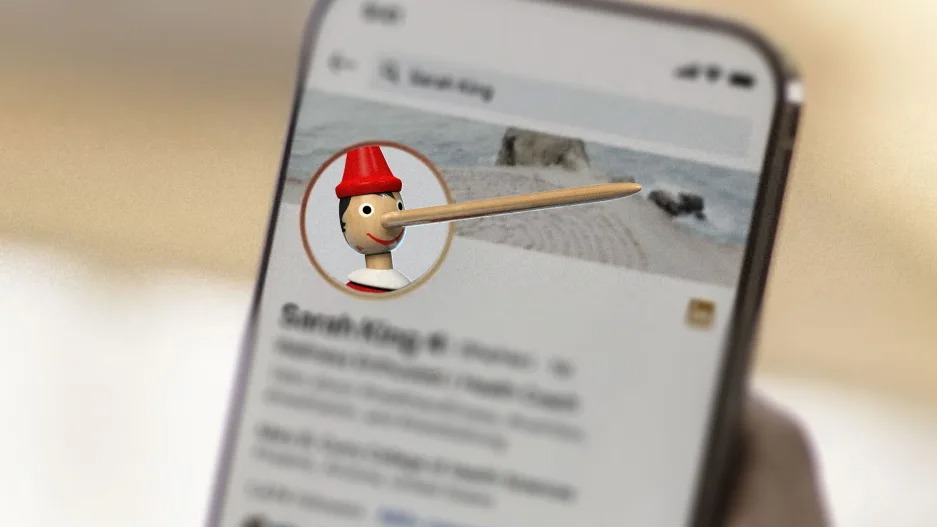- | 8:00 am
Can new technology tell if you’re lying on LinkedIn?
The CEO of ZippedScript says the technology exists but isn’t streamlined enough yet to root out the phonies.

At its last count, LinkedIn says it has around 850 million members worldwide. However, unless a user takes the time to fill out a form identifying fake or inaccurate information about an imposter account, it’s nearly impossible for the social media platform to determine whether profiles contain false claims about a person’s education or employment. One survey found that 34% of LinkedIn profiles contain inaccurate or misleading information.
Binance, one of the largest crypto exchanges in the world, found this out firsthand when it discovered that roughly just 50 profiles out of 7,000 claiming to be Binance employees on LinkedIn were actually employed by the company. Since LinkedIn is the most popular site for businesses on social media, this should be alarming. A flood of fake employees threatening a company’s brand could happen to any enterprise—with very few consequences.
Millions of professional recruiters, human resource departments, and hiring managers use LinkedIn to seek qualified candidates for open positions. LinkedIn profiles that contain lies about employment, degrees achieved, and certifications earned can cause major headaches for employers. Hiring misfires can cost thousands of dollars to rectify.
And if you’re wondering why anyone would risk lying about their education on LinkedIn, look at the economics of risk. A person with a master’s degree in biology can demand twice the salary of someone entering the workforce with a bachelor’s degree. And with a slim chance of getting caught, many people are willing to sacrifice ethics for the opportunity to jump a few rungs on the corporate ladder.
Nearly 70% of companies try to verify employment prior to making someone an offer, but up to now there hasn’t been a streamlined way to do it. Clearly, the candidate verification process needs to pivot from relying on analog reporting to an automated system that leverages current technology.
What if there were a way to connect directly to an institution’s database to prove, for example, that a candidate really did graduate from Columbia or Wharton with a master’s in finance? In our current age of blockchain and even recent advancements in database technology, it shouldn’t be so difficult to expose the phonies.
While there will always be a few individuals wary of more monitoring technology, verifying the truth about what someone posted on their profile does not have to be invasive and wouldn’t require tracking cookies like today’s digital advertising. Instant verification should be a welcome thing to recent graduates starting careers in competitive industries. Someone with a legitimate advanced degree (and the college debt that often goes along with it) should be relieved to have the ability to get their credentials verified so that they aren’t compared to people with résumés full of fluff.
An instant, accurate verification of education or employment is a solution. Currently, there are two accurate ways of offering automated verification. One is through a custom, frictionless application programming interface, or API, that integrates with a company’s hiring software and workflow. The other is a web-based platform that verifies the information a candidate reports. Conveniently, neither method requires the storing of end-user data. Anything submitted can be deleted once verification is complete.
There’s no reason this same technology can’t be used to verify employment records as well. Imagine if all of those actual Binance employees had a verification badge next to their work history on their LinkedIn profiles. That would be enough to discourage anyone who is tempted to misrepresent their employment with Binance from committing the fraud. It would also keep someone from making an honest mistake on their profile.
Knowing that education and employment claims are accurate is a win-win for the company doing the hiring and the viable job candidate.
The technology is already available. It’s time we started using it to support the qualified and expose the liars. Someone who didn’t earn a degree shouldn’t be able to type “Harvard” into their LinkedIn profile and get away with it.







































